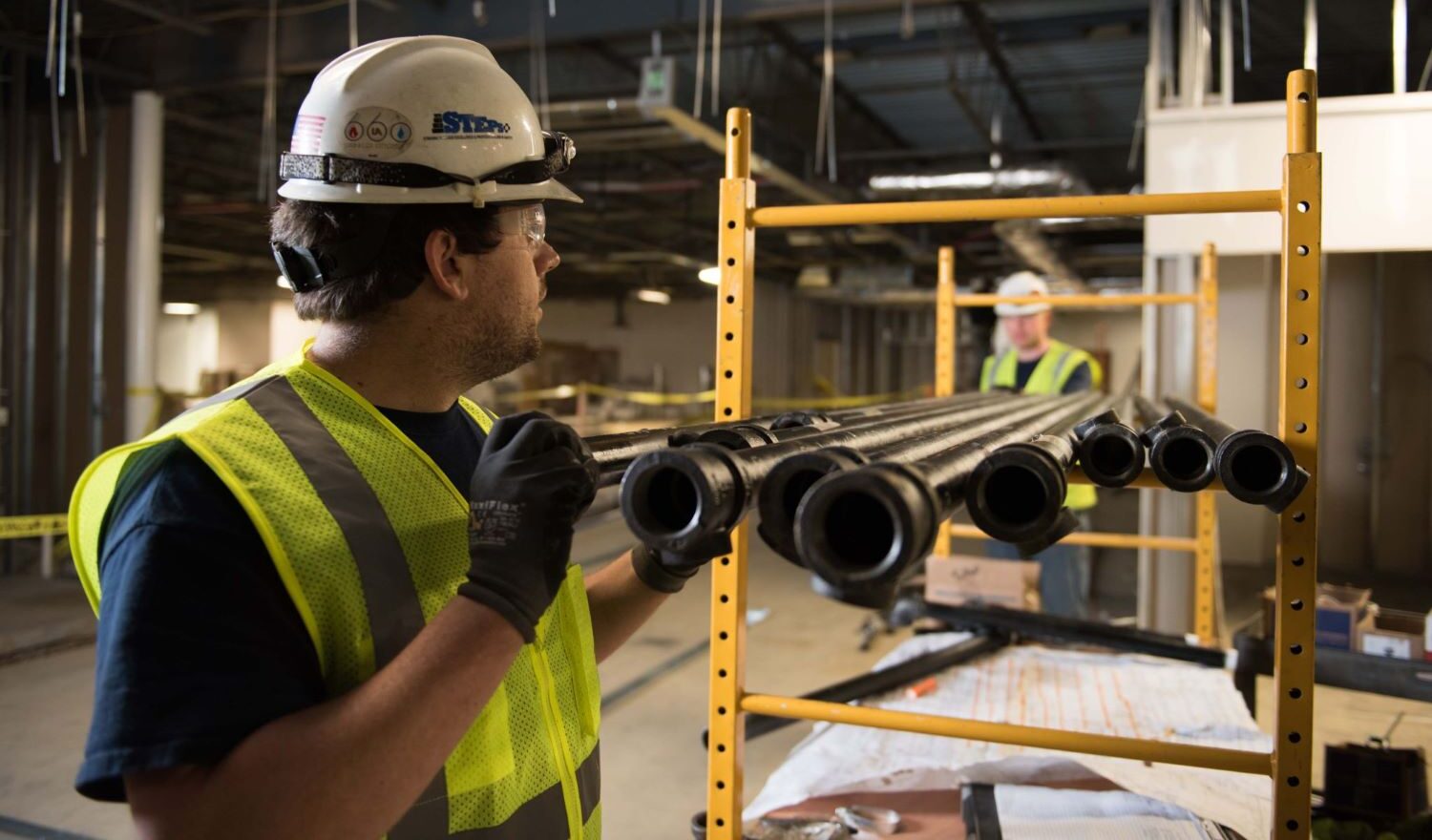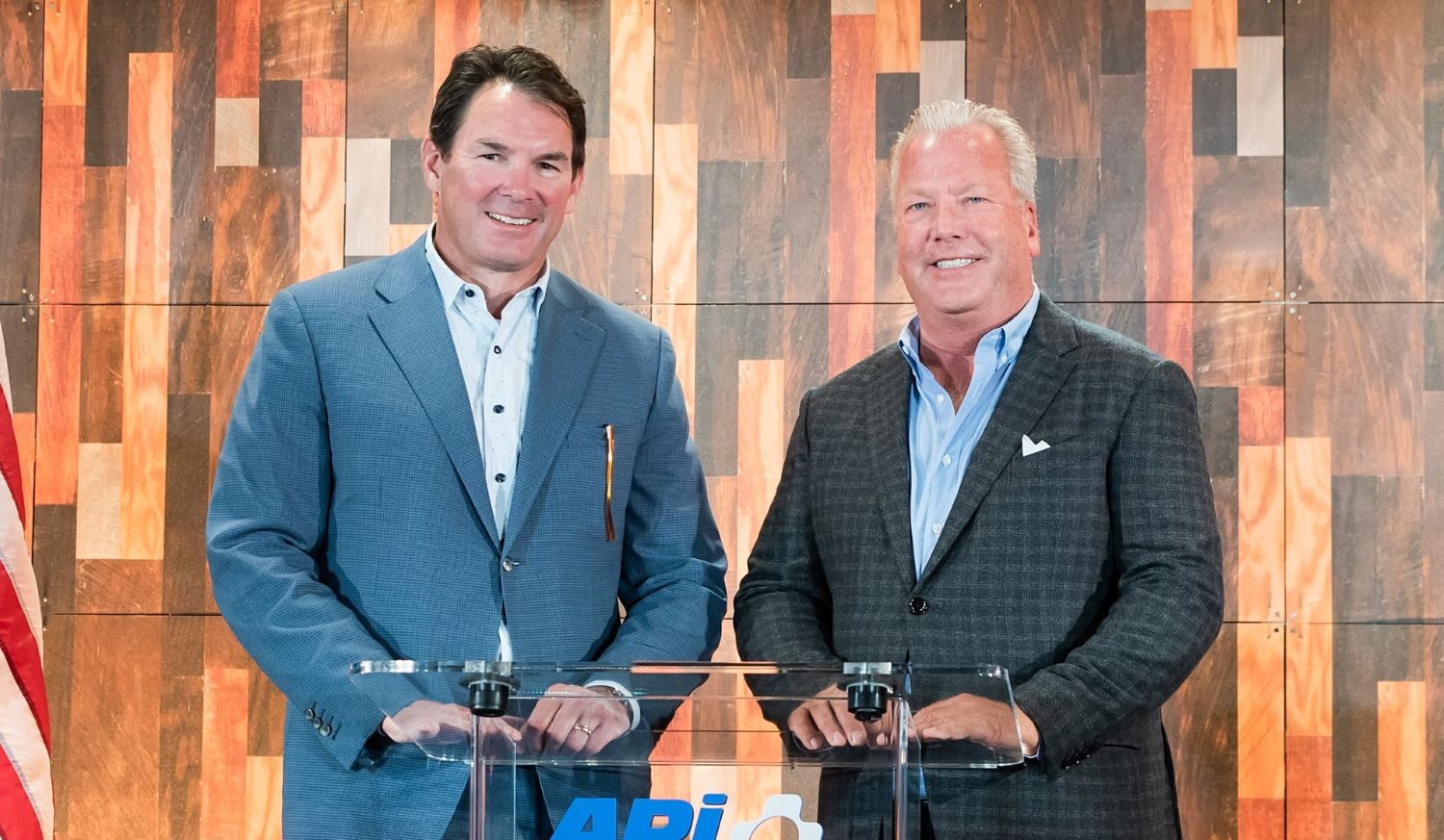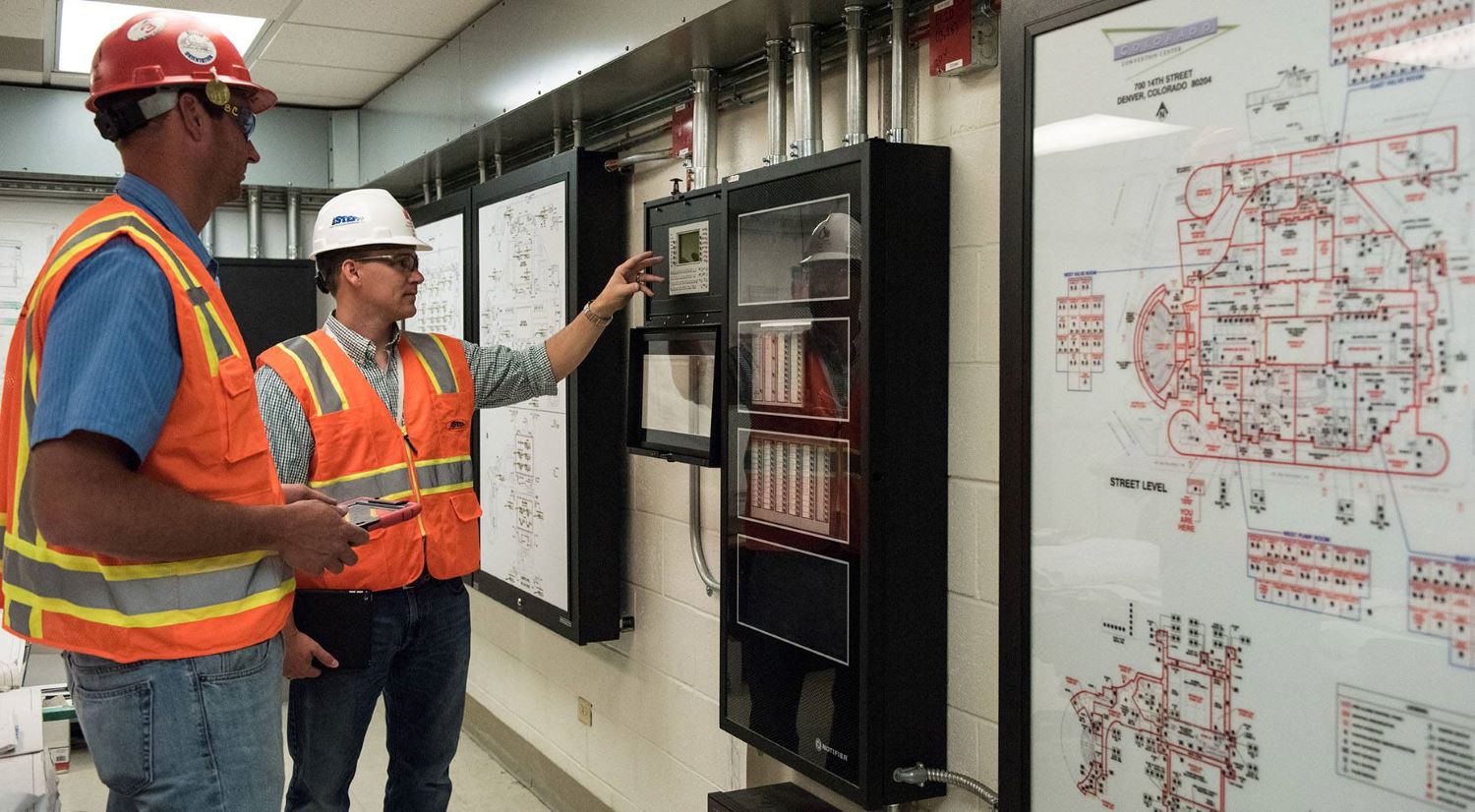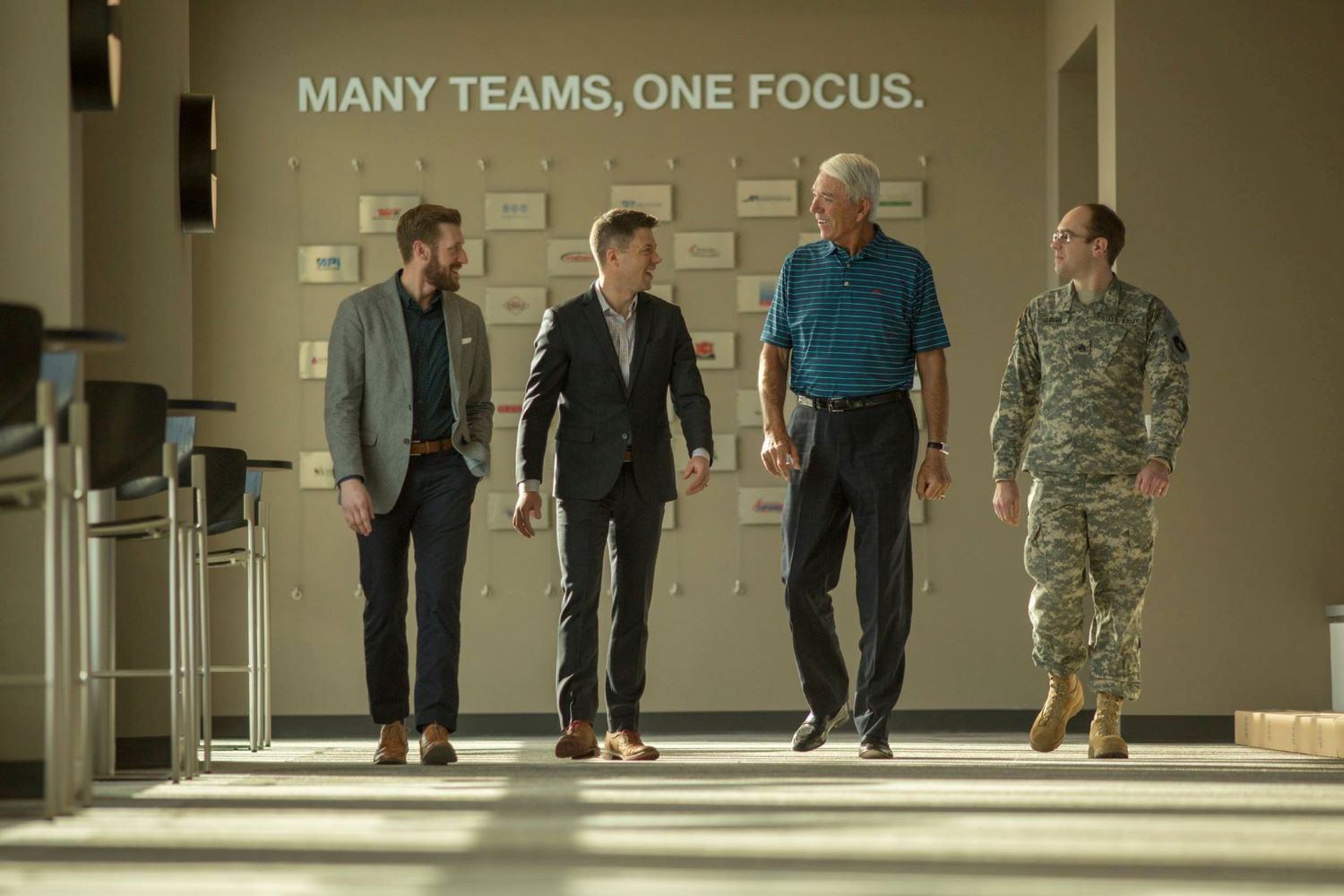360-View into APi Group Leadership Compass and the Lesson Learned
With the root of a plumbing and heating business, APi Group made its first acquisition in 1969 and since then grown into a national leader based in Minnesota. Has been around for more than 90 years, the company went public around 2019 with the three main segments of Safety Services, Specialty Service, and Industrial Services.
Saying its philosophy to be offering the finest customer-driven service by using common resources and shared experiences, the firm has won over old-oak and successful leaders to join its organization. And the beauty of this is the diverse leadership style the workforce experienced from a wide range of savvy leaders.
In the series Building Great Leaders from its in-house team, many chiefs from APi bring in their personal stories that define their leading styles and the core principles they believe in – from talent engagement, the right mentally walking in and out of chaos, to the culture of empowerment.
Be Your Whole Self While Leading: Yes or No?
From the series, Shannon Swanson – APi Group’s Vice President of Employee Services shares insights she has gained from more than 30 years growing up along the firm. From an assistant to being the first female Vice President and the many savvy lessons, she encourages companies and employers to leverage when it comes to humans and the talent pool.
Joined in around 2003 as an administrative assistant, the president later upholds a one-person department called Employee Benefits and grow it into a fourteen-person team as it is today.
Upon the cycle of getting talent onboarded, engaged, and retained, it is important that employers show up with their whole selves as well as allow employees to be theirs. What are things leaders are encouraged to do to achieve that outcome?
Empowering teams to be their whole selves requires leaders to take the initiative and open gates for conversations, Swanson says, “being open and listening and not just talking to people like a test, whether that person is similar to you or not. But it’s the listening and being curious about each other that counts.”
According to the president, there is the borderline where employees feel that is the limitation for sharing at work environment, yet as leaders, you are encouraged to express curiosity and interest to help create space for such spirit to bloom.
“People don’t check their packages at the door when they walk in. You can’t flip the switch and be a different person.” Professionalism is essential, Swanson addresses, but while you can only build great friendships and family bonding with your whole self it is the same with workplace relationships.
Good Mental Health Is a Marathon

More from the employee story, Swanson walks on Talent Maintenance at the firm to tell how she and the team advocate and contribute to creating an environment that preserves good mental health.
There are two main problems for companies when it comes to this area. Firstly, the stigma around people with mental health that restrain them from talking about it. Secondly, as a subsequence, they do not know how to recognize or respond to the event.
“When there is a physical issue we know how to jump in and get the necessary treatment. I don’t think we know to have a conversation if somebody does open up to us or if we notice somebody is in distress – how do we open that discussion?” While it remains a challenge for her and the firm, yet the solution they have found to be most effective is through training.
“We have an employee assistance program – an online Therapy Program that is a part of our health plan. But continuing to communicate through the year is important and we are also going to start offering mental Health First Aid training.”
The underline message is mental health is a difficult challenge and you have to train for these things – how to deal with these situations between employees with each other and employers with their inferiors or juniors, as the president puts it – “it’s like running a marathon or doing a whole lot of other things – you have to start somewhere!”
What Is the Seed of Successful Empowerment?
APi’s Chief Financial Leader of the Safety Services Segment – Luke Cope describes his leadership style with the keyword of ‘Empowerment’ and brings in his perspective of growing out of a merger.
Having an unconventional career path, Cope reminisces his first day into the industry was at the field working with his tools. “I had a unique opportunity when my friend’s father owned a large electrical contracting business in New York and was willing to give me an opportunity to learn the business from the ground up.”

From the field, he got pulled into the inner circle of the ownership or the business side of the firm – meeting customers, attending union negotiations, and even meeting the banks. With an understanding of the business, the chief then gets access to the office environment and can bring forward information that empowers and helps companies achieve outstanding results at Western State. Just last year, the company got acquired by APi Group and has Cope promoted to the position.
With a diverse background, Cope addresses, it is essential for the finance team to have the same journey he has from the field to the inner circle.
“I think it’s really important that I can give the team a similar experience that I have and pull them into much of the big picture, so they can understand how they were influenced and influencing.”
Because that is how you cultivate your perspectives as well as principles on your team, he says, not by telling them but showing them – and that will be the seed of successful empowerment.
Upon the culture of empowerment, as the chief claims, it is the environment where teams enjoy coming to work and enjoy working with each other from which they feel the urge to accomplish great heights.
Besides building and maintaining, great cultures also need to be protected and it comes from both parties. On the leader side, “when I think of the pressure we deal with every day whether it’s from other executives or groups. I don’t step in and try to micromanage or control as it will negatively impact the culture of empowerment.” More importantly, to preserve this spirit, leaders have to give up that feeling of wanting to be needed – “because if the team need me, they are not empowered, so everything I’m doing again is to set the team up in an environment where they feel comfortable taking risks.”
On the team side, it is not just what you are promoting as a leader but also what you are allowed to do. “If somebody on the team who is not on board with that mentality, I have to address right away and make a decision to remove that person, if necessary.”
Navigating Teams through Chaos
With the transition to a public company accounting teams across the group are going through a lot of changes and pressure. How can leaders best support their accounting or finance teams?
“I have to say that being acquired and going public has been a really good thing for the organization and I say that because it has put us in this position where we have to be more integrated as one team.”
The event, Coper recalls, has done a great job on forcing his team to learn doing things in a more consistent and aligned manner, because that is the only way they could keep up with the demands of being a public company, “with the growth that the shareholders are expected from us.”
On the other hand, it is critical for the upper level of presidents and leaders, he addresses, not to make the mistake of not being inclusive. “Well, this team is so busy and not so relevant. Let’s not include them in this conversation or not bring in enough information into the meeting – that is the worst thing you could do.”
Leaders have to make sure teams are brought into the right conversations and give them that three-sixty view because that will be the clues for them to structure their part at the organization as well as make sure that part fits the rest.
“It’s really important that they are seeing what you are seeing from an organizational perspective. So, they can best support you,” Coper continues, and in return, teams will need your supports and directions, especially while they are moving fast forward.
“This is not just the finance team, this is the typical stress you see in any operation that is striving fast. I call this building muscle to get them ready for the next chapter.”
The Real Business Case for Diversity, Equity, and Inclusion

Continuing the series, Velma Korbel – the firm’s Vice President and Chief DEI Officer breaks down her department’s impact upon the organization. Why do companies need Diversity, Equity, and Inclusion (DEI)? What are the roles it plays in the business case? And what is the new competency leaders are encouraged to adopt?
“It is good for business because inclusive companies attract better talents, there’s deeper employee engagement, and subsequently looks more attractive to stockholders. It’s not just a good thing to foster in community but also the right thing to invest in, in business.” – Korbel explains.
Not just organizations like APi, but companies at all scales – she says, should be stressing on DEI work. As the workforce spends most of their lifetime at the workplace, it is truly a community and such community needs inclusive leaders to thrive beyond.
For a thorough approach to this concept, the president breaks down how her team perceives these values. Firstly, “diversity – it’s the difference that makes differences. It’s not only the composition of the workforce but also the type of businesses the company is doing and our partners, who are they?” Secondly, “equity – the change that creates changes. We will ask why and how questions? Why do we have disparity? Why do we not have enough diverse talents in our pipeline? Equity is about evaluating the current state and then trying to figure out a way to make it better on the back.”
Last but not least, “when I talk about inclusion, it’s about changing the circle of opportunity so that everybody can be brought in to bring about transformational innovations and movements.” In achieving these promising outcomes, Korbel claims, culture fluency will be the necessary leadership competency for you to adopt.
The Bottom Lines
When an organization takes that leap to go public, they are not only growing financially but also mentally. For teams to stretch and meet expectations, leaders are required to reach new heights of strategic thinking and more importantly social savvy. Specifically, the main theme the APi presidential team shares in their leading philosophy is the shifting toward people – it is the people now that businesses encompass around.









